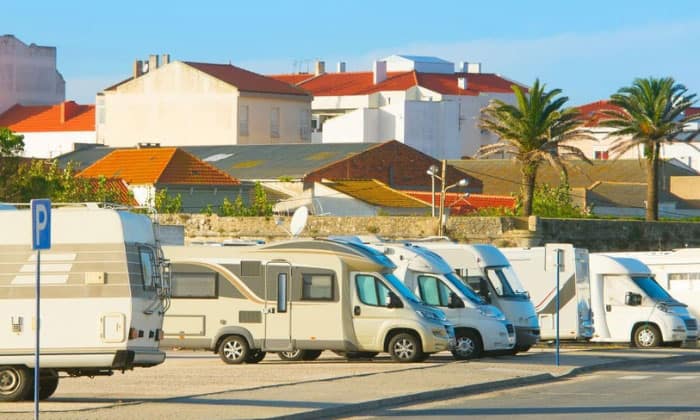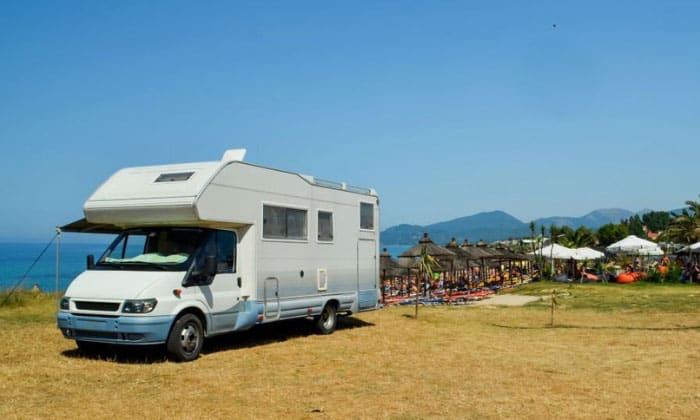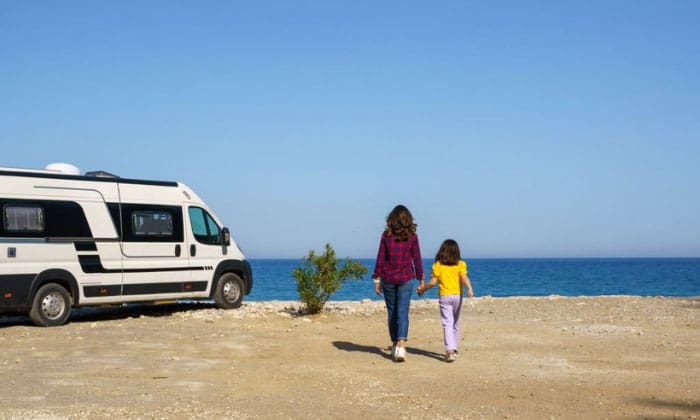Imagine having the flexibility to go wherever the road leads you, waking up to the sound of the ocean washing against the shore, and enjoying your morning coffee as the sun rises over magnificent beaches.
Recreational vehicle living, commonly known as RV living, offers a seductive way of life full of adventure, flexibility, and a greater connection to nature. But, is it legal to live in an RV in Florida? On my land or on my property? Can you live in an RV in Florida?
The short answer is yes. Still, there are a lot of factors to consider, including local and legal requirements, as well as climate considerations. So fasten your seatbelts as we take you on an exciting journey through the RV lifestyle against the captivating backdrop of Florida’s various surroundings.
Page Contents
The Legalities of RV Living in Florida
The legality of living in an RV in Florida may be impacted by regional zoning laws. Regarding where and how long you can park or dwell in an RV, some locations may have special regulations.
While some areas permit brief stays on private land, others might impose limitations, which are important to know for people living in those specific counties.
So, following RV laws in Florida, what part of Florida can people who want full-time RV living consider?
As luck would have it, all Florida counties allow RV living. This will include every type of RV or motorhome. The only universal stipulation is that it should have a power source, running water, and an efficient sewage system.
But some prerequisites must be met, including HomeOwners Association (HOA) regulations. Below are things you should keep in mind before making an RV your humble abode.
- There can only be one RV or one set of camping equipment parked on the property.
- The RV must be on land that belongs to or is rented by the owner, or at the very least, one of the tenants. If you’re not a Florida resident, you can’t park the RV for more than 14 days.
- RVers must park their vehicles either on the side of a house or at the back. Moreover, the exact location must be within imaginary lines sandwiching the fronts of the nearest and farthest buildings to the street.
- The RV must be at least ten feet from a property’s rearmost delineation, even if you are confident about the building sitting on my land (your land).
- RVers are responsible for an RV parking space’s cleanliness, maintenance, functionality, and aesthetics.
- An RV parking space is not a garage RV owners can repair, renovate, or restore regardless of ownership.
- The RV owner is responsible for keeping the vehicle’s registration and license plates valid (up-to-date).
- One cannot park an RV that’s longer than 30 feet and taller than 10 feet. Moreover, the state requires RV owners to secure their units to avoid turning them into a projectile during the hurricane season.
RVers can park and live full-time in their vehicles, provided they adhere to Florida rules and regulations, especially related to the vehicle’s size and how it can be an obstruction or “threat” to other motorists and pedestrians.
Legal Consideration and Residency Laws
Here are other considerations in Florida counties that allow RV living:
- There are many RV parks and campgrounds in Florida zoned for RV that are intended for extended stays. Most of the time, staying in these authorized locations conforms with state laws and provides services like water, electricity, and sewage hookups.
- You might be interested in Florida’s homestead exemption if you intend to utilize your RV as your main residence. For permanent inhabitants, this exemption may offer some property tax advantages, although it often only applies to stationary homes, not mobile homes like RVs.
- You might need to get a Florida driver’s license and register your RV with the state if you want to spend a significant amount of time living in Florida in it. Insurance and address changes are other things to do while establishing your domicile in the state.
- You should abide by health and safety laws when residing in an RV, just like you would anywhere else. These rules address things like garbage disposal, fire safety, and sanitation.
- If you decide to live in an RV in Florida, you must have a strategy for escaping during hurricane season. Florida is prone to hurricanes.
To obtain the most recent and correct information on the laws of RV living in Florida, it is advisable to speak with a lawyer or a local government official.
Can My Kids Live in an RV With Me?
Of course, there are a few rules you would need to follow to be permitted to live in an RV with your children.
- All children living with an RV family must have their respective sleeping quarters.
- RV owners must ensure age-appropriate seatbelts and other safety devices are in good working order.
- Essentials (i.e., hygiene and grooming) must be accessible to children living with RV families.
- Parents living in RVs must enroll their children in an educational institution closest to the RV. Alternatively, they can enlist their kids in a homeschool program.
- RV families must ensure children’s healthcare and safety needs.
- RV families have identical parenting responsibilities as those living in fixed homes, including provisions for nutritious food, safe play, and medical resources.
Conclusion
Can you live in an RV in Florida? In Florida, it is legal to live in an RV on your property, although doing so may mean overcoming bureaucratic obstacles that the HOA has previously opposed.
However, Florida is easily accessible for RVs and motorhomes, and there are many state parks and RV sites with excellent amenities that provide cozy lodging.
Despite these options, some people find the concept of living permanently in an RV, even with kids, to be intriguing. Amidst RV zoning laws, the appeal of waking up to different views every morning is an intriguing thought for people considering an RV as a home and as primary residence.
“Hi, I’m Francis’ husband—Calvin. Our story began with our shared passion for traveling. I have had a career journey for over 11 years at Ford Motor Company, where I took on the role of BMS SW Process Engineer.
Together with my wife, I have dedicated countless hours to exploring every nook and corner of the world. Ten years living in an RV may seem long, but time seems to fly by when I’m doing what I love with the person I love.
FMCA’s 103rd International Convention & RV Expo in Gillette, WY,
Like my wife, I hope to help you see the beauty of traveling off the beaten path by sharing insights into this lifestyle. In addition to my corporate roles, I also launched our website – Outdoorbits, in 2015 and continue to contribute my knowledge and skills to the present day. And I’ll be completely honest with you—no hiding the truth or sugarcoating the possible challenges.
So, if you want to run away from the busy lifestyle to embrace nature, I’m your guy.”



